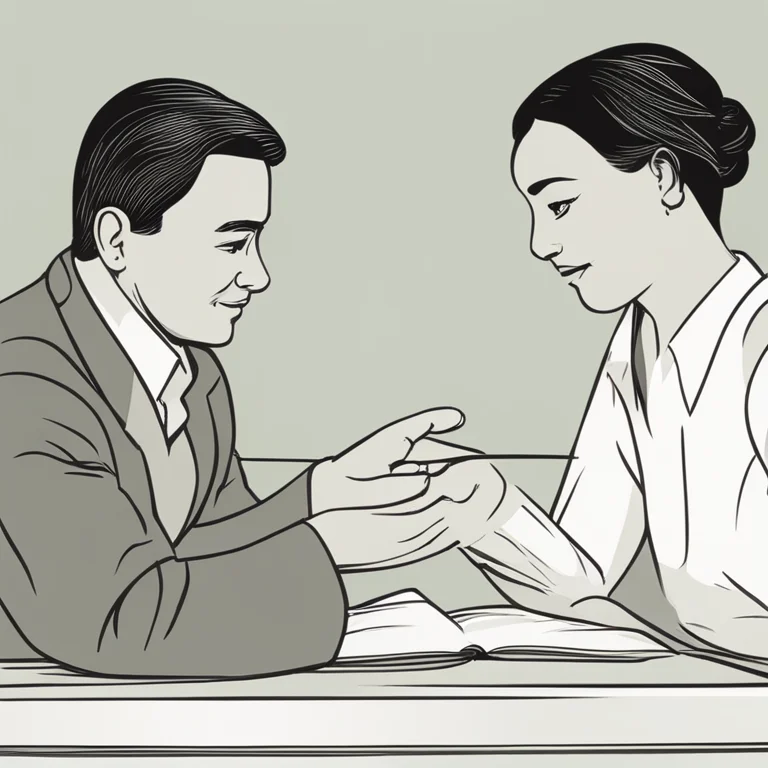
The Palm's Tale: Can Palmistry Foretell Lifespan?
Discover the connections between palmistry and life expectancy predictions, and the perspectives on this ancient practice in modern times.
article by Nora Pennington
Palmistry's Glimpse into Longevity
Palm reading, or palmistry, has been a source of curiosity and intrigue for centuries, with many turning to the lines on their palms seeking insights into their destinies. Among the many questions posed to palmists, one is particularly compelling: can life expectancy be foretold through the study of palm lines? This article delves into the tradition of palm reading and its stance on predicting lifespan. Although palmistry is often viewed skeptically by the scientific community, it remains a popular subject among enthusiasts seeking to understand more about their life's journey.

The Heart Line and Vitality
Central to the practice of palmistry is the interpretation of the heart line. Traditionally, a clear and unbroken heart line is said to indicate a strong emotional and cardiovascular health, which can be loosely associated with a longer life. Conversely, breaks or variations in the heart line are often read as signals of potential health challenges. It is imperative to remember, however, that such interpretations do not have empirical backing, and the implications they suggest are meant more for reflection rather than diagnostic purposes.

Lifeline's True Meaning
The lifeline, swooping around the thumb, is commonly believed to signify one's longevity. However, modern palmists clarify that it reflects quality of life, vitality, and physical wellbeing rather than the number of years one will live. A long, deep lifeline is typically associated with a well-lived, vigorous life, but it is not necessarily a guarantee of an extended lifespan. Palm readers emphasize the importance of considering all lines in a holistic manner rather than focusing on one as a solitary beacon of fate.

The Science and Skepticism
In the age of empirical evidence and scientific method, palmistry's claims about life expectancy prediction face scrutiny. No scientific studies have conclusively linked palm lines to longevity, leading to a broad skepticism about the putative predictive power of palm reading. Critical thinkers and health professionals maintain that lifestyle choices, genetics, and medical care are far more accurate determinants of lifespan than the patterns etched into one's palms.

Palmistry in the Digital Era
With technological advancements and the proliferation of data, palmistry has entered the digital realm, with numerous apps and online services offering palm reading analysis. Despite the digitalization of this ancient art, users are advised to approach the results as entertainment or for personal contemplation rather than literal predictions. The essence of palmistry today lies in its role as a tool for introspection and a lens through which one can view potential life paths, rather than a crystal ball offering definitive answers about longevity.
Conclusion: A Philosophical Approach
Whether examining life expectancy or other aspects of one's future, palm reading should be approached with a blend of open-mindedness and critical thinking. The wisdom of palmistry may not lie in its ability to predict the number of years we will live, but in its capacity to encourage us to live those years to the fullest. Ultimately, the narratives we interpret from the lines on our palms can be empowering and thought-provoking, serving as a reminder of life's mysteries and our own potential.
Published: 1/10/2024
Modified: 1/10/2024
More predictions
Come back here soon to learn more about yourself and your future


The Basics of Palmistry: Learn to Read Palms
Master palmistry basics with this guide on how to interpret lines and shapes on the palm for insights into personality and destiny.


The Secrets of Hand Analysis
Delve into the intriguing world of palm reading and discover the hidden aspects of your personality through the lines and shapes in the palms of your hands.


Palm Reading Guide: Basics and Insights
Delve into the art of palmistry with this essential guide to reading palms, revealing secrets to personality and destiny through the lines on your hand.